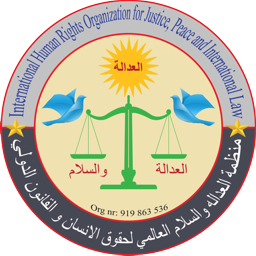DISCLAIMER
We use cookies and our own third-party for measuring and analyzing the usage of the website to improve our services. By continuing to browse, we consider you have accepted their use. All images used for preview are copyrighted by their respective owners.

HROJPIL
International Human Rights Organization
for Justice, Peace and International Law.
Kongsberg, Norway

Rahma, in defense of Gaza, rebuking Clarissa Ward, a CNN correspondent
Wearing black clothes, stern features, and an angry voice, Egyptian journalist Rahma Zein stood up and shouted in defense of Gaza, rebuking Clarissa Ward, a CNN correspondent, and sharply criticizing the coverage of Western media, especially American ones, which she described as biased toward Israel and supportive of everything. Do it against the Palestinians.
Rahma, in defense of Gaza, rebuking Clarissa Ward, a CNN correspondent
Wearing black clothes, stern features, and an angry voice, Egyptian journalist Rahma Zein stood up and shouted in defense of Gaza, rebuking Clarissa Ward, a CNN correspondent, and sharply criticizing the coverage of Western media, especially American ones, which she described as biased toward Israel and supportive of everything. Do it against the Palestinians.
Rahma, in defense of Gaza, rebuking Clarissa Ward, a CNN correspondent
Wearing black clothes, stern features, and an angry voice, Egyptian journalist Rahma Zein stood up and shouted in defense of Gaza, rebuking Clarissa Ward, a CNN correspondent, and sharply criticizing the coverage of Western media, especially American ones, which she described as biased toward Israel and supportive of everything. Do it against the Palestinians.
الصحفيّة المصرية “رحمة زين” توبّخ “كلاريسا وورد” مراسلة CNN
بملابس سوداء، وملامح صارمة، وصوت غاضب، وقفت الصحفيّة المصريّة “رحمة زين” دفاعًا عن غزّة، وفاضحة لتسييس العمل الصحفي، ونقل صورة مضلّلة، في مشهد شغل العالم برمته خلال الأسابيع الماضية.
Jimmy Carter, a member of Congress: Cannot oppose Israel’s policies